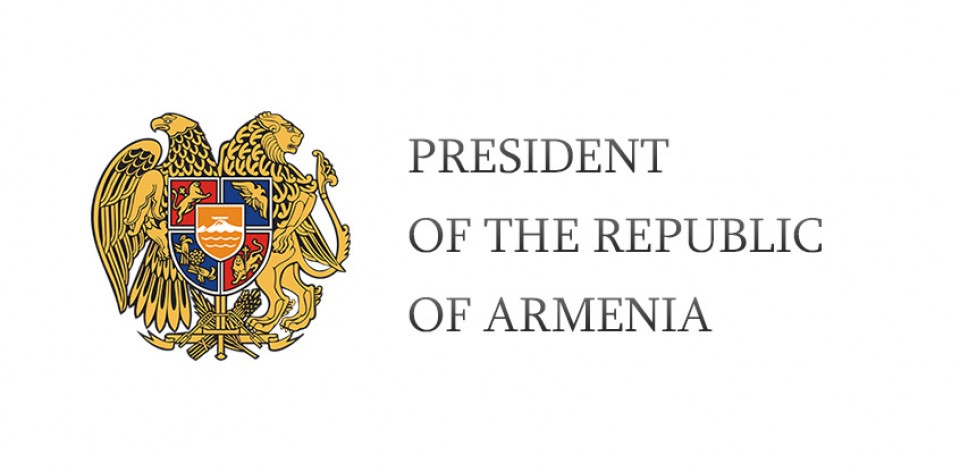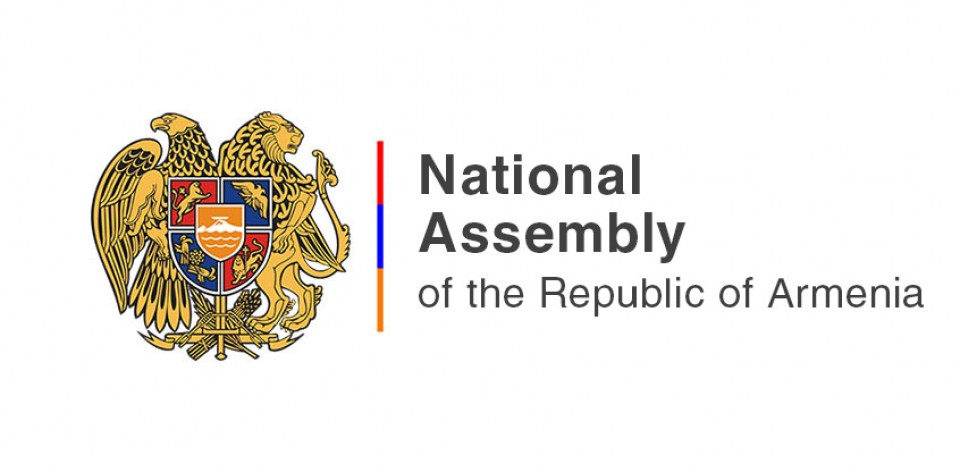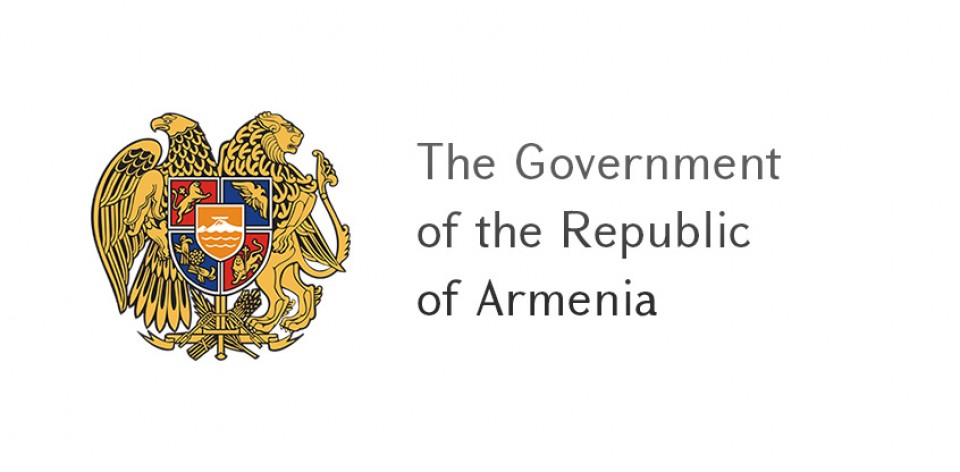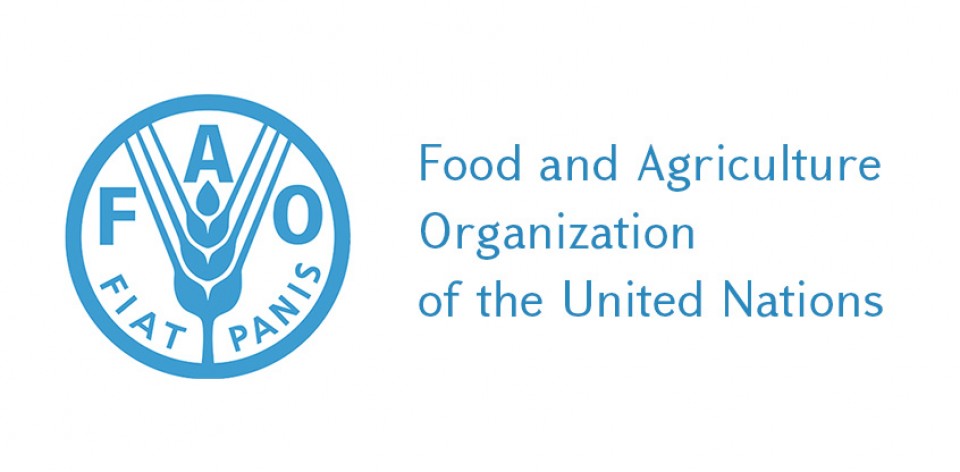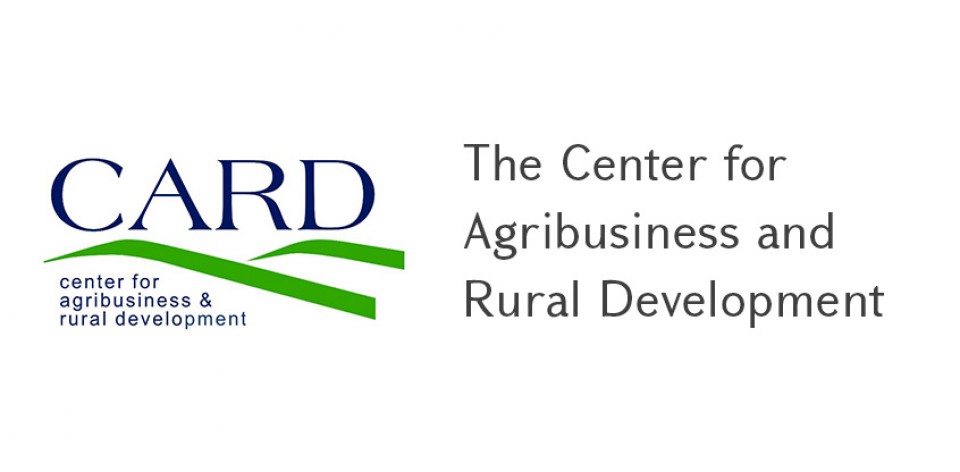In spring of 1924 by the decision of the USSR People’s Commissariat of Armenia a seed selection station of national standing was founded in Shirak prairie, northeast direction to Leninakan town, on the black soil located 15470.0m above the sea level, in the conditions characteristic to sub mountain region to study the agricultural plants, local varieties and testing of populations. The seed selection station was provided with 21,5 argent of land equivalent to 12 ha allotted from the communal land.
In 1926, after two years of operation by the proposal of the USSR Crop Research Institute, People’s Commissariat of Armenia reorganized Leninakan seed selection station into the seed testing station, the land was divided into five fields and the following process of seed circulation was organized:
a/ occupied fallow
b/ autumn sowing/trial sowings/
c/ spring sowing
d/ root crops /sugar-beet etc/
e/ spring sowing
Regardless the shortage of required specialists and lack of appropriate economic and technical facilities huge works have been done in Leninakan seed testing station to study different local and imported crops.
In 1924-1926 the studies cover the following varieties:
- 17 varieties of oat, three times
- 19 varieties of wheat, three times
- 20 varieties of barely, two times
- 17 varieties of corn, two times
- 1 variety of sudan grass, four methods
- 7 varieties of sugar-beet, etc,
During these years more than 200 samples of imported crop varieties have been tested.
The purpose of the works carried out in1926-1927 was to select efficient varieties of spring and autumn grains for sub mountain region of Armenia with the support of the USSR Applied Botany and New Crops Research Institute. In 1929 additional twenty argent of arable land was provided to Leninakan seed testing station for testing cereal and forage crops and later technical and tilled crops. In 1929 in the testing land provided by the People’s Commissariat of Armenia nurseries were founded to grow crop seeds which a year after joined the newly set up sugar-beet growing farm. It should be mentioned that as early as in 1924 Armenian specialists carried out sugar-beet testing works and studies of agrochemical issues.
Based on the results of 3 year research conducted in Leninakan testing field it was proposed to take up beet breeding in Armenia. The first sowings of industrial significance were initiated in 1928 on 12 ha in beet growing state farm (sovkhoz) set up next to the testing field.
In 1931 for improving the works of Leninakan seed testing station three Divisions were established and by the order of People’s Land Commissariat the testing field was renamed into “Leninakan testing and selection station” with three Divisions:
1/ grain varieties / autumn, spring wheat, barely/
2/ leguminous plants and industrial crops /beans, peas, lentil, linseed, corn/
3/ potato and vegetable crops /potato, cabbage, red beet, carrot /.
The second is agro technical and the third –seed breeding Division.
In those years the selection and seed breeding works were managed by Arayik Baghramyan-the head of selection and testing land who was cooperating with agronomist Artsvik Sahakyan dealing with sowing activities.
In 1927 the students of Agricultural faculty of the University Karapet Stamboltsyan, Armik Petrosyan were sent on mission trip to the station as promising specialists and later the graduates of the same faculty Vahan Karapetyan, Olga Aleksanyan, Vardush Amyan, Susanna Khachartyan, Zvart Khzmalyan and Marjik Marjanyan joined the station staff.
Since 1924-25 under the leadership of I. Makarevich major efforts and efficient sugar-beet research works have been done in the testing field. Before 1929 sugar-beet was separated from the testing field and zonal station was set up where Olga Aleksanyan and Armik Petrosyan organized large scale and efficient works for sugar-beet cultivation.
In 1932 the sugar-beet zonal station was incorporated again into the selection station area by the approval of the USSR Sugar Research Institute for efficient coordination and improvement of activities.
In the first of years of its establishment, the station had 10-12ha land and after liquidation of the beet-growing farm, the neighboring arable lands were connected to station and in consequence, the station owned 375 ha land. In 1931-32 a part of the land was taken back and 100 ha arable land remained in possession of the station.
In 1932 the station had 6 departments: selection, beet breeding, vegetable growing selection station, forage and seed growing and industrial planting departments.
Vegetable growing department located in Yerevan had 2 ha land and was the focal point of the station managed by Anhit Ananyan. Similar focal points were established in Martini, Gjulakarak for potato growing managed by Ser-Sahakyan. Those years, in addition to the above specialists, Amalia Azatyan – the manager of forage and silage plants department as well as other specialists worked in the station.
At that time the station had no necessary material and technical facilities and the labor and and service staff was mainly employed by seasonal and temporary workers.
The Resolution of the USSR People’s Commissariat of Armenia on Activities for improving grain plant seeds adopted on June 1937 contributed greatly to the development of the station and based on this Resolution the testing selection station was renamed into “Leninakan state selection station” which was the only one in the country. Alongside with research and testing activities large-scale selection and seed growing works have been implemented. Academic and production cycles were efficiently combined. The selection station did huge work for development of agriculture in sub mountain zone of the country with new proposals and introduction of new varieties. Up to now, it is a research center where reproductive grain seeds and other agricultural crops are produced and provided to the similar regions of the country.
From 1937 down to date the station is engaged in selection and seed breeding for corn crops- autumn and spring grain, spring barely, leguminous plants- bean, lentil, peas, perennial grass plants- sainfoin, alfalfa, vegetable crops – cabbage, carrot, table beet. The agro technical department jointly with agrochemical department did much for researching agro technical issues of the main crops cultivated in Shirak marz, such as wheat, barley, potato, corn, sainfoin, alfalfa, sugar beet, grain varieties tec.
Based on long-term experience 8 and 10 field crop rotation was introduced for field grass to study the fertilizing for the crops cultivated in these fields, definition of norms and application of mineral and organic fertilizers, as well as research works and issues for raising land fertility.
The station is the producer and supplier of corn crops /wheat, barely/, grain crops /bean, lentil, pea/, perennial grass plants /sainfoin, alfalfa/, vegetable crops /table beet, cabbage, carrot/ in the sub mountain zone of the country.
Up to date more than 40 varieties of agricultural crops have been developed.
“Gyumri selection station” Close Joint Stock Company (hereinafter “the Company”) is a profit seeking commercial organization the charter capital of which is divided into certain number of shares certifying the liability right of the shareholders towards the company. All the shares issued by the company belong to the Republic of Armenia with ownership right.
“Gyumri selection station” CJSC was set up by reorganization of the former “Arable Farming Research Institute” state enterprise at the RA Ministry of Agriculture by the order of the RA Ministry of Agriculture number 319 dated September 13, 1999 and is its successor.
The state governing body and founder of the company is the RA Ministry of Agriculture.
The goal of the company is profit making through economic activities.
The main activities the company are as follows:
-selection research works for corn crops, perennial grass plants and other agricultural crops in Shirak valley,
-development and growing of above crops pedigree, supper, supper-supper pedigree seeds,
-development of field crops growing and fertilizing, as well as crop rotation technologies,
-production of seeds for corn crops, perennial grass plants and other agricultural crops, their collection, sale, organization of retail and wholesale trade,
-export, import and barter of corn crops, perennial grass plants and potato seeds in the manner specified by the RA legislation,
-provision of services in agricultural sector,
-retail and wholesale trade of food and non-food products.
Director: Rubik Karakhanyan
Tel.: (+374312) 6 62 39
email: info@gyumribrst.am
web page: gyumribrst.am

